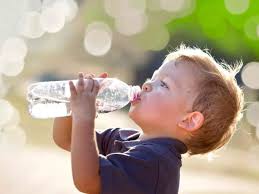Can Water Expire?

We drink water to hydrate our bodies, cook our food, and even use it in cleaning and industrial processes. But a common question often arises: Can water expire?
To answer this, we need to understand the nature of water, its storage, and the different forms in which it is found, including bottled water, tap water, and stored water for emergency use. In this article, we will explore the science of water, the factors that affect its shelf life, and whether or not it really has an expiration date.
The Nature of Water
Water is a simple molecule, consisting of two hydrogen atoms bonded to one oxygen atom (H2O). Its chemical structure makes it incredibly stable, and pure water does not go bad on its own. Unlike food or beverages, which can spoil or ferment due to the growth of bacteria, yeast, or mold, water doesn’t inherently decompose or expire in the same way.
However, water can become contaminated over time. Whether it’s stored in a bottle, a tank, or a well, the potential for contamination depends on how the water is stored, handled, and exposed to environmental factors. So while the water itself doesn’t expire in the traditional sense, its quality can degrade under certain conditions.
Bottled Water: Does It Expire?
Bottled water is perhaps the most common form of water that people consider having an expiration date. Many bottled water containers have an “expiration date” printed on the label. This has led to confusion and concern among consumers. However, the expiration date on bottled water is not an indication that the water itself has gone bad. Instead, it refers to the shelf life of the plastic bottle and the potential degradation of water quality due to storage conditions.
Why do bottles have expiration dates?
- Plastic degradation: The main reason behind the expiration date on bottled water is the plastic used in the bottle, typically polyethylene terephthalate (PET). Over time, PET plastic can release trace amounts of chemicals into the water, especially when exposed to sunlight or stored at high temperatures. These chemicals, such as antimony and phthalates, can affect the taste and safety of the water if the bottle is kept for too long. Therefore, bottled water manufacturers label an expiration date as a way of ensuring that the water is consumed while the plastic is still safe.
- Taste and odor changes: While the water itself remains largely unchanged, the taste and odor may begin to degrade over time if the bottle is not stored properly. This could happen if the bottle is exposed to heat or sunlight, as these conditions can cause the water to pick up unwanted odors from the plastic.
Does bottled water really expire? While it’s true that water in plastic bottles can degrade over time, it doesn’t mean the water is unsafe to drink just because the expiration date has passed. The expiration date is more about maintaining the freshness of the water and the integrity of the plastic bottle. If the water has been stored in a cool, dark place, it can last much longer than the date on the bottle suggests, often without any noticeable difference in taste or quality.
Tap Water: Does It Expire?
Tap water is another form of water that can be affected by various factors, but it doesn’t have an expiration date in the traditional sense either. In fact, water from municipal systems is treated and filtered to meet specific safety standards, making it safe to drink at the time it is delivered. However, once tap water is exposed to the air or stored improperly, its quality can degrade.
Factors affecting tap water quality:
- Contamination: Tap water can become contaminated over time if it is not stored properly. For example, if it is stored in an open container, dust, bacteria, or other contaminants could get into the water, making it unsafe to drink.
- Stale water: If tap water is stored in a bottle or jug for too long, it can become stale. This doesn’t mean the water has gone bad, but the taste may change, and the water may lose its fresh, crisp flavor. This is a common issue with stored water, especially if it is not kept in a cool, dark place.
- Plastic containers: Similar to bottled water, tap water stored in plastic containers can pick up the smell of plastic over time. The water itself doesn’t expire, but the container may leach chemicals into the water, affecting its taste and safety.
How to store tap water: If you are storing tap water for later use, it’s important to do so in a clean, sealed container. Glass bottles or jugs are preferable because they do not leach chemicals into the water. It’s also crucial to store water in a cool, dark place, away from direct sunlight and extreme temperatures. Under ideal conditions, tap water can last for several days or even weeks in a sealed container, though the quality may degrade with time.
Water in Emergency Storage: Does It Expire?
Many people store water in case of emergencies, such as natural disasters or power outages. These stored emergency water supplies can come in bottles, large jugs, or even in special long-term storage containers. When properly stored, water can last for extended periods. However, even in these cases, the question of whether water expires is still relevant.
Long-term water storage: For emergency purposes, water is typically stored in bottles that are specifically designed to be safe for long-term use. These bottles are usually made of durable materials like high-density polyethylene (HDPE) or BPA-free plastics, which do not degrade as quickly as regular PET bottles. When stored in a cool, dry place, water in these containers can remain safe for several years.
Degradation of quality over time: Although water doesn’t “expire” in the sense that it becomes dangerous to drink, stored water can still suffer from the degradation of its quality over time. The main risks come from:
- Bacterial growth: If the water has been improperly sealed or contaminated during the storage process, bacteria can grow, especially in warmer conditions.
- Chemical leaching: As with bottled water, water stored in plastic containers may begin to leach chemicals into the water, especially if the containers are old or exposed to high temperatures.
Best practices for storing emergency water: To ensure that your emergency water remains safe to drink, it’s important to:
- Store water in a cool, dark location.
- Use clean, food-grade containers.
- Rotate your water supply regularly to ensure freshness. Many experts recommend replacing emergency water every 1 to 5 years.
How to Tell if Water Has Gone Bad
While water itself doesn’t spoil or expire in the traditional sense, there are signs that it has become unsafe to drink or has lost its freshness. Here are some indicators to look for:
- Changes in taste or odor: If water has been stored improperly, it may develop an off taste or odor. This could be a sign that chemicals from the container have leached into the water, or that bacteria have begun to grow.
- Cloudiness: If the water is cloudy or has particles floating in it, it may be contaminated and should not be consumed.
- Container damage: If the container is damaged, cracked, or leaking, it may indicate that the water inside has been compromised. This could allow contaminants to enter the water or the container’s plastic to break down and affect the water’s quality.
- Visible growth: If you see any mold or algae growing in the water, it’s definitely no longer safe to drink.
Conclusion
Water itself doesn’t expire, but the conditions under which it is stored and the materials used to contain it can affect its safety and quality. Bottled water typically has an expiration date because of the plastic bottle, not the water itself. Tap water can be stored for extended periods, but its quality may degrade over time due to exposure to air or improper storage. Water for emergency use can last for years if stored properly, but it is important to follow best practices to ensure it remains safe to drink.





